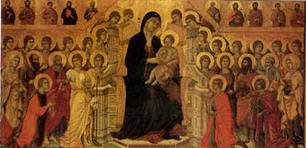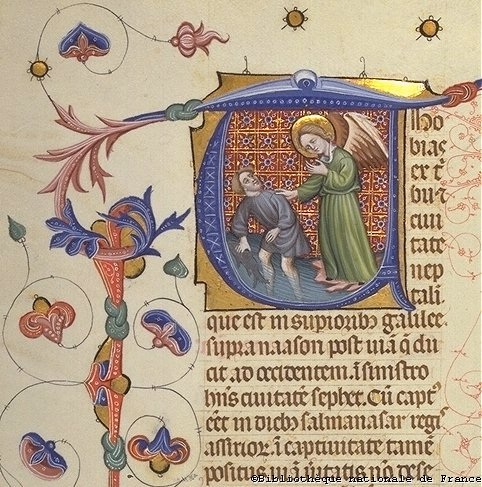
Sermon of St Ambrose
Mark well how Jesus goeth upward with his Apostles, and downward to the multitude. How should the multitude behold Christ, save in a lower place? Such go not up with him to the things which are above; such attain not to the things which are high. Hence, when Jesus cometh down, he findeth such as are diseased: for such like go not up to the heights. Hence also Matthew saith that there were there "all sick people." Of these every man had need of healing, that, when he had received strength, by and by, he might go up into the mountain. And therefore, being himself come down to the plain, he healeth them in this lower place; that is to say, he calleth them away from their earthly desires, and freeth them of their blindness. He cometh down to the level of our wounded condition, to impart to us something from the abundance of his own nature, thus to make us joint-heirs of the kingdom of heaven.
Blessed be ye poor, for yours is the kingdom of God. Saint Luke giveth us but four of the Lord's beatitudes, whilst Saint Matthew hath eight. However, the four are contained in the eight, and the eight in the four. For in these four are embraced the cardinal virtues, whilst the number eight in itself containeth a mystery. It is written at the head of more than one of the Psalms that they are for the octave. And thou hast received the commandment: Give a portion to seven, and also to eight. To seven or eight what? Perchance, degrees of blessedness. For the octave of blessedness, namely this eighth beatitude, doth name the most glorious realization of all virtues, Blessed are they which are persecuted, and also the fullest realization of blessedness: Theirs is the kingdom of heaven.
But let us now consider the fuller of the forms of these beatitudes. Blessed be ye poor, for yours is the kingdom of God. Both of the Evangelists give to this beatitude the first place. Yea, surely, for poorness, at least in spirit, is the first in order, the mother and procreatrix of virtues; since he that setteth no store by temporal things, winneth toward eternal things; neither is any man able to gain the kingdom of heaven, on whom the love of this present world doth so press, that he cannot rid himself thereof.














